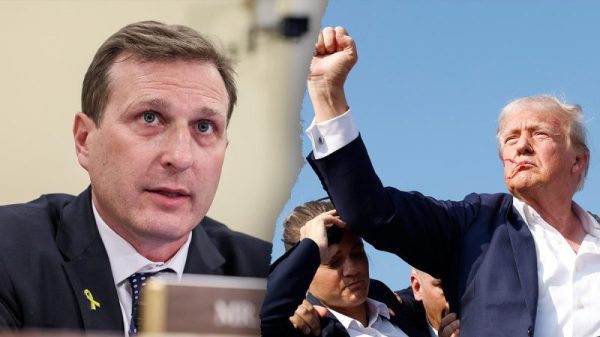It has been obvious for months that Rep. George Santos (R-N.Y.) was going to be a problem for the House Republican Conference. Soon after he won election last year in a congressional district that had backed Joe Biden in 2020, questions emerged about fabrications he’d made in presenting his personal history. It only got worse from there, with more accusations and allegations mounting until the Justice Department filed felony charges against him.
But while Santos was an embarrassment, he wasn’t necessarily a political liability. After all, he was a vote, and the Republican majority didn’t have many of those to spare. So for months, he was granted the benefit of the doubt by his peers, as long as he kept showing up and voting the way they wanted.
On Thursday, the House Ethics Committee released a detailed report of its months-long investigation, saying there was “substantial evidence” that Santos had done many of the unappealing or illegal things of which he had been accused. He escaped expulsion votes previously, but the Ethics Committee report established an important institutional benchmark for his colleagues to remove him from office.
If they do, my analysis suggests, they’ll lose a colleague who didn’t make a significant difference in voting this year anyway.
It is clearly the case that Republicans were lucky to get Santos in Congress in the first place. Biden won his district by eight points, and, of the members of Congress who represent districts won by Biden, only one has a more conservative ideology, according to Voteview. If Santos’s seat opens up, there’s a good chance he’ll be replaced by a Democrat or — at best — a less conservative Republican.
But while the Republican majority is narrow, it’s not so narrow that one seat consistently makes a big difference. There have been nearly 670 floor votes this year that weren’t simply quorum calls; of those, only 10 resulted in a tie (meaning the question at issue failed) or came down to one vote.
The one that was a tie was on an amendment to H.R. 2670. There was another vote on the same amendment, though, and it passed by one vote — a vote that could be attributed to Santos. A vote on another amendment to H.R. 2670 was similarly passed by one vote, Santos’s.
But H.R. 2670 never became law. It passed the House and then died in conference.
That’s the pattern with the other seven votes that came down to one vote: all were on amendments to bills that either didn’t pass the House or weren’t taken up by the Senate. In two of those seven votes, Santos didn’t cast a vote at all.
The amendments for which he cast the deciding votes were often thematically similar. The summaries provided by the House clerk describe six of them as follows:
“expand the types of weapons officers are allowed to purchase to include all retired firearms,”“eliminate any offices of Diversity, Equity, and Inclusion along with the personnel in said offices within the offices of the Armed Forces and Department of Defense,”“prohibit the [Department of Defense] from carrying out the President’s Administration climate change executive orders,”“prohibit any funds made available by this bill from being used to fund the Farm to School Network Racial Equity Learning Lab,”“prohibit funds to implement the Climate Corp.,” and“prohibit funds from being used to implement any of the Administration’s executive orders on climate change.”
But, again, none of those were attached to bills that became law.
Santos generally simply went along with the majority when he was casting votes. He did so in 606 of the 667 non-quorum votes cast, including every one of the votes for speaker that unfolded in January and October. Interestingly, he’s become less likely to vote with the majority as the year has unfolded — and the pressure on him has increased.
In other words, he’s not even as reliable a vote for the majority anymore, reducing the extent to which Republican leaders might feel like he needs to be protected.
There’s an important caveat here, certainly: Part of the reason the bills for which amendments were decided by one vote didn’t become law was because the Senate is controlled by the Democrats. But this is still relevant, given that this partisan bifurcation on Capitol Hill itself means that the stakes of slightly narrowing the Republican advantage diminish.
Santos isn’t likely to be serving in Congress much longer (though probably not because Santos will resign). The effect on the House Republican conference will be a narrow majority and enormous difficulty in passing legislation.
In other words, there won’t be much of an effect at all.







































